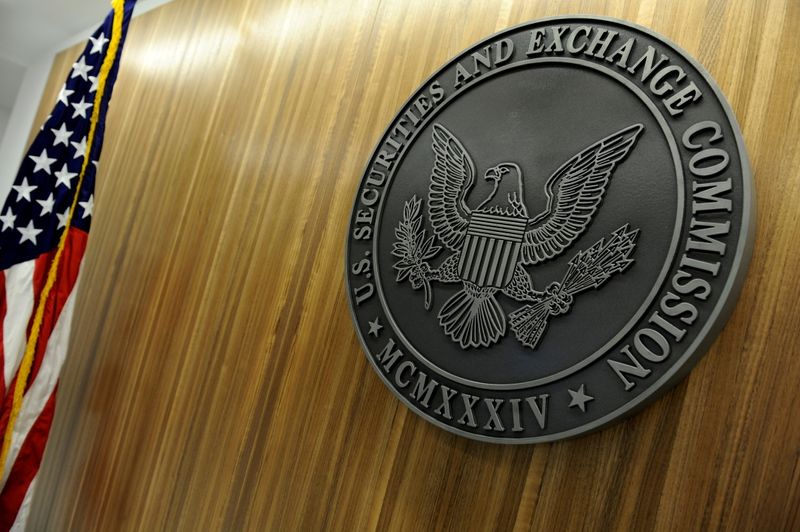(Corrects paragraph 6 to clarify that Schwab did not restrict buying or selling of GameStop's shares, but that it adjusted margin requirements and restricted certain advanced options strategies)
By John McCrank
NEW YORK (Reuters) -The U.S. Securities and Exchange Commission on Monday released a report examining the frenzied trading in shares of retailer GameStop Corp (NYSE:GME), and other 'meme' stocks, in January, and recommended some areas for further regulatory consideration.
The report could have implications that affect where retail stock orders are executed and how that service is paid for, when brokers can restrict trading, and the amount of transparency around short sales.
Here are some key details from the GameStop saga:
WHAT HAPPENED?
Shares of GameStop surged more than 1,600% in January as retail investors colluded in online forums like Reddit's WallStreetBets to try to bid up the heavily shorted stock and force hedge funds to unwind their bets against it, with the hope the short squeeze would drive the price even higher.
The extreme volatility in GameStop shares, along with other popular meme stocks, prompted the clearinghouse that guarantees trades before they are completed to raise the collateral from brokers to clear the trades.
That led several brokerages, including Robinhood (NASDAQ:HOOD) Markets, to temporarily restrict trading in the red-hot stocks, helping curb the rally, infuriating retail traders and rattling market confidence. Others, like Charles Schwab (NYSE:SCHW) Corp, adjusted margin requirements and limited advanced options strategies on the affected stocks.
WHY THE SURGE IN RETAIL TRADING?
In late 2019, large retail brokers like Schwab and Fidelity followed Robinhood's lead and eliminated trading commissions.
Then, in early 2020, with COVID-19 lockdowns keeping people at home, major entertainment and sporting events canceled, and government stimulus checks sent to many U.S. households, retail trading levels soared.
While the main narrative around the GameStop frenzy was retail investors taking on big hedge funds, institutional investors were also major players in the buying and selling.
WHO WAS HURT?
Hedge fund Melvin Capital required a $2.75 billion lifeline when it had to close out its short position in GameStop at a huge loss in January.
Anybody who bought GameStop shares at $482.95 on Jan. 28 and then sold them since would have lost money.
GameStop shares are currently at $183.28, around 1,275% higher than they were a year ago.
WHAT HAS HAPPENED SINCE?
- Congress held several hearings on the GameStop episode;
- The SEC has asked for public comments on the effects of the "gamification" of trading apps and whether the public is at risk;

- The main post-trade utility for U.S. stocks has recommended shortening the settlement cycle for stock trades to one day after the trade happens, from two days;
- Various companies and industry groups have made recommendations on improving transparency around the execution of retail orders.